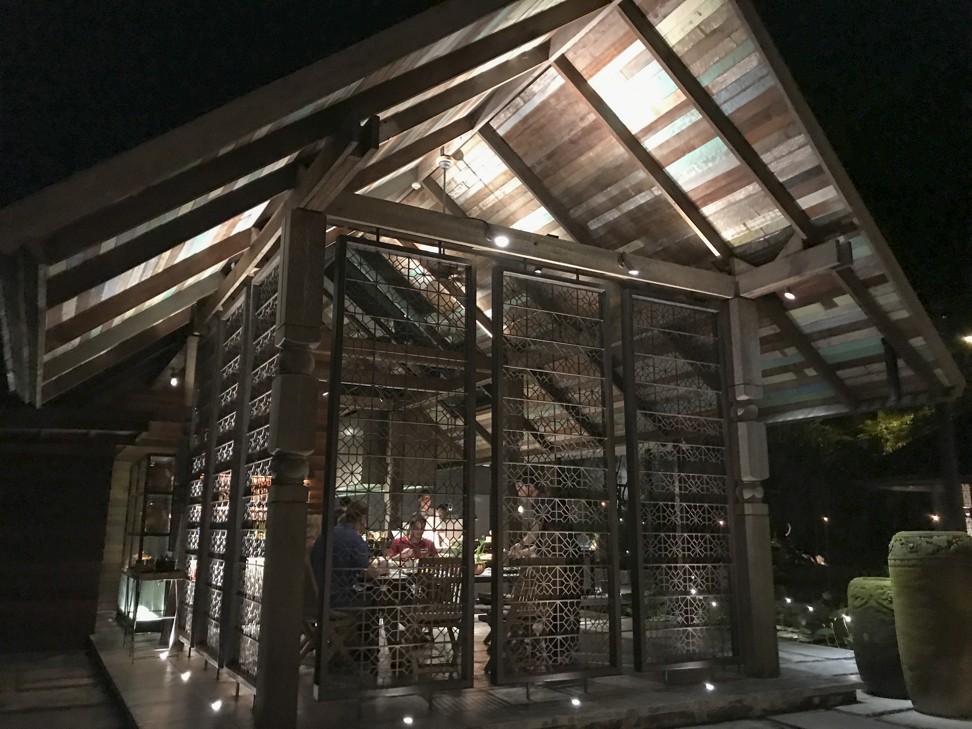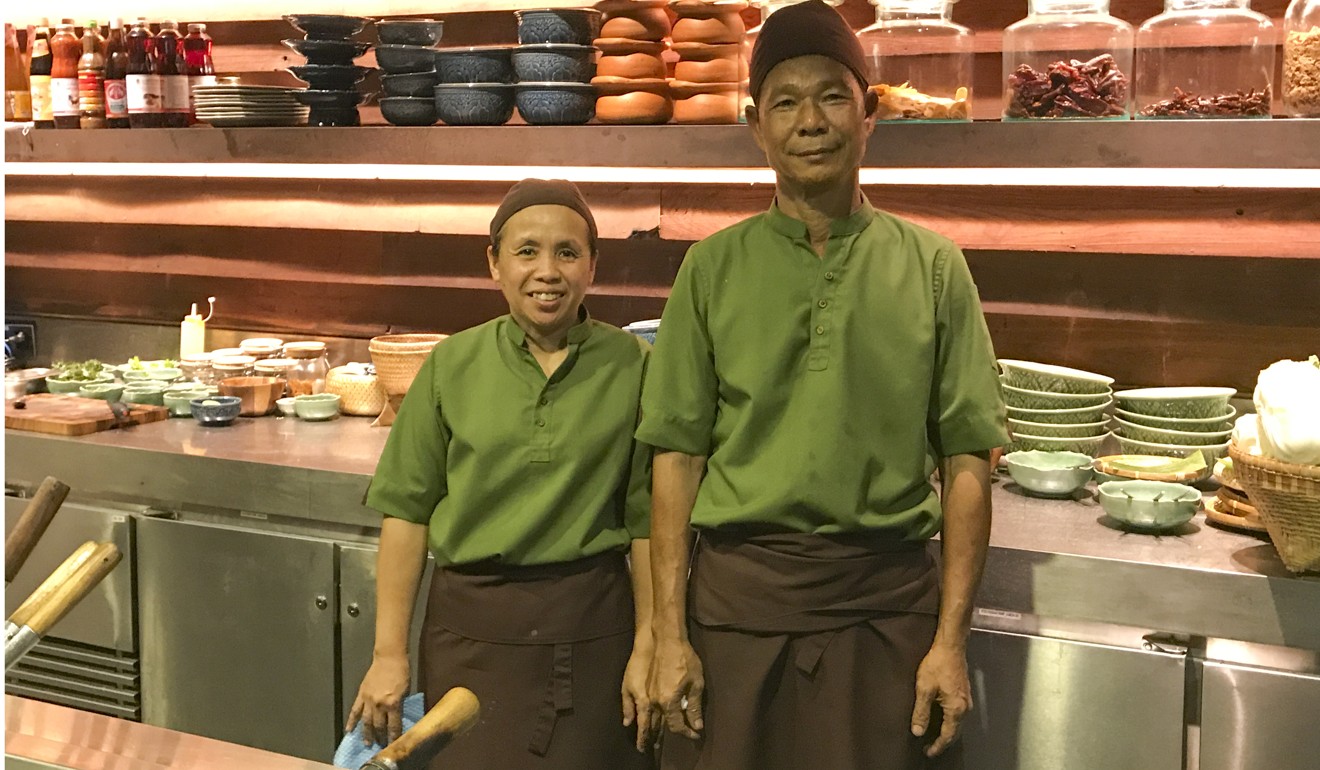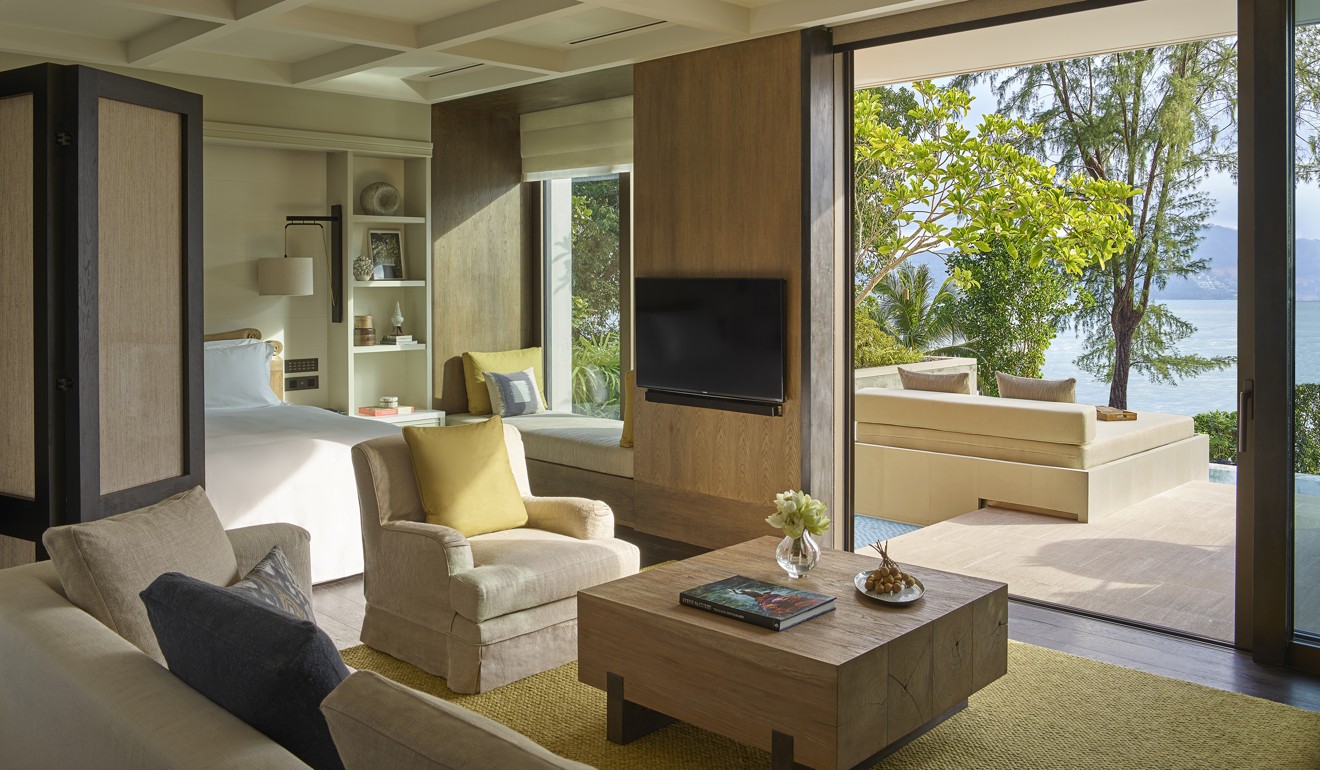Phuket resort where Hollywood-approved lifestyle guru plays central role
What is it? One of two Southeast Asian properties opened under the Rosewood Hotels & Resorts brand by the Hong Kong-based Rosewood Hotel Group in the past few months (the other being in Phnom Penh, Cambodia), Rosewood Phuket is a 71-room resort that sits on 600 metres of beachfront on the west coast of Thailand’s largest island, just south of Patong.
What is so special about it? Rosewood Phuket cost more to build than any other resort in Thailand, according to director of communications Roger Gibson, much of the expense sunk into reservoirs and other infrastructure to ensure the property is self-sufficient in water and meets other criteria necessary to earn a gold LEED (Leadership in Energy and Environmental Design) rating.
Luxury hotels go green as millennials demand sustainable travel options
Another expense was ensuring that landscaping appeared mature from day one (in November), which involved a lot of moving and replanting of trees, and the protection of 150-year-old sacred banyans.
First impressions? From the discreet sign beside the main entrance, along the narrow walkways/buggy paths that twist through the resort and even pass across the top of villas, this place is designed to be a voyage of discovery, and that discovery extends to the personal.
What do you mean?Asaya has been described in other reviews as an “innovative, integrated wellness concept”, but that doesn’t do justice to what Rosewood is trying to achieve here. The idea – which is being debuted in Phuket, to be replicated to a degree in the Hong Kong Rosewood, due to open in September – is to put Asaya at the centre of the resort, with all else flowing from the wellness centre and its atelier (although those who wish to spend their holiday on a sun lounger by the pool, sipping sweet basil mojitos or green papaya gimlets while the children are taught batik painting and a spot of gardening at the well-equipped kids’ club, are equally welcome).
5 chic wellness retreats where you can take a break from the grind of Hong Kong
How does it work? Again, I could tell you that Asaya offers guests “a bespoke programme of alternative therapies, lifestyle coaching, fitness activities and specialised healing practices”, but I still wouldn’t be doing justice to the concept. Leading the programme is holistic practitioner Steve Harvey, who rose from the mean streets of Glasgow and trained with the likes of Deepak Chopra and Tony Robbins to become lifestyle coach to a red-carpet roll-call of Hollywood A-listers (Demi Moore and Hugh Jackman among them), athletes and executives.
Why Phuket draws top sports stars for training – cyclists, Maria Sharapova, triathletes and Olympians from around the world
Self-acceptance is the goal, and a consultation with Harvey – which lasts for as long as it takes – might involve a chat designed to “transform fear, doubt and uncertainty into fuel for brilliance, confidence and creativity” followed by reiki, sound therapy or a number of other alternative techniques to address acute or chronic pain. Rather than taking the bad out, says Harvey, “I aim to put the good in,” and the resulting tailored plan could involve an ointment made with ingredients plucked and ground with pestle in mortar by the guest themself in the wellness atelier, or a vegan meal plan to follow for the rest of your holiday.
Ah yes, food. What’s on offer? For starters, there’s The Shack, which serves simple seafood beside the pool, and then there’s Red Sauce, an Italian restaurant with open kitchen and an outdoor terrace overlooking Emerald Bay. Transitioning seemlessly from relaxed pool bar by day into sophisticated chill-out lounge after dark is Mai, but the pièce de résistance is Ta Khai, which is destined to become the “best destination restaurant in Phuket”, claims Gibson.
Well, he would say that, wouldn’t he! True; but Ta Khai (“fishing net” in Thai) is impressive. The restaurant is overseen by “Nun” Rotkaew and Sangchan “Yai” Suttitummanon, a pair who fitted the directive from head office for “a married couple who had been running a restaurant for at least 30 years and had never worked for a hotel chain”.
My 48 Hours in … Phuket
Having operated businesses in their native Trang province and then outside Phuket Town, the couple now serve up their curried crab (made with a paste that has evolved over their years together) and tilapia fish mousse steamed in banana leaves in a setting designed to resemble a fisherman’s village: a series of pavilions constructed from wood repurposed from an old barn the designer liked the look of, a kitchen-to-table herb and vegetable garden, and a pond from which guests can fish out their dinner.
Menus vary depending on what local fishermen have managed to catch and “carefully chosen, aromatic seasonings not only provide a unique flavour to the food, but also have distinct medicinal benefits”, promises Aunt Yai.
And what about the rooms? They are designed to resemble comfortable beach residences: furnishings are made of natural materials, palettes are neutral and the Thai influences subtle. With large windows facing seawards, all pavilions and villas are flooded with natural light. Nine of them have direct access to the beach.
The good, bad and ugly sides to a holiday in Phuket
Is that a good thing, bearing in mind that no beach in Thailand is private? Well, yes; Tri Trang, as it is locally known, may be a public beach, but it is a quiet one, and a double hedge arrangement helps put distance between the beach goer and the guest dipping into their private pool, as well as define a patch of secluded sand for a sunlounger.
We’re not interested in bars. What else would we leave the resort to see? “Everything begins with a decision,” says Harvey, and a wise one may be to forget the earthy pleasures of Patong and instead hail a long-tail boat for a chug around Emerald Bay. Or venture further afield for a stroll through Old Phuket Town, a 30-minute drive away.
What’s the bottom line? A 130-square-metre Partial Ocean Pool Pavilion starts from 25,500 baht (US$817) in the off season of April 16 to October 31.
Getting there
A number of airlines fly direct from Hong Kong to Phuket, including Cathay Dragon, Thai Airways, Hong Kong Express and Thai AirAsia.
Let’s block ads! (Why?)





